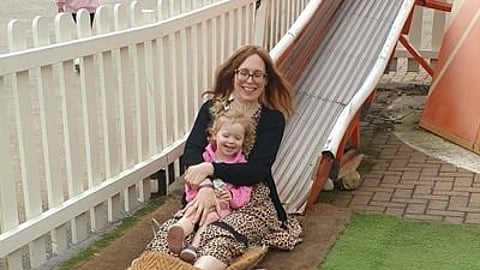

A mother is “absolutely broken” following the death of her two-year-old daughter, Isabelle Cooper, from a rare genetic condition that also claimed the life of her three-year-old son, Alexander. Isabelle passed away early Thursday morning after being diagnosed with the same genetic disorder as her brother.
Dr Emily Cooper, a lecturer at the University of Central Lancashire, shared with The Telegraph how Alexander's death had remained “unexplained” for nearly two years until doctors identified the PPA2 mutation, inherited from both parents, Emily and Darren Bowes. This mutation poses a risk to their other three children.
The condition, classified as a type of Sudden Arrhythmia Death Syndrome (SADS), can lead to sudden cardiac death in otherwise healthy young individuals. After genetic testing, it was confirmed that Isabelle carried the gene, while their other children, Freddie and a yet-unborn daughter, were free of the condition.
In a poignant post on X (formerly Twitter), Dr. Cooper announced Isabelle's passing, stating, “We are broken. However, we want you all not to think of her death, but to honour her by living life as she did: fearlessly, joyously & spontaneously.” She shared a picture of Isabelle enjoying an ice cream, urging others to cherish life as her daughter did.
Friends have set up a JustGiving page to support the family during this heartbreaking time, noting the loss of Isabelle to PPA2 deficiency, which can lead to sudden cardiac death in infants and young people.
Dr. Cooper previously recounted to The Telegraph the harrowing experience of losing Alexander, who had complained of a stomach bug on Christmas Day but seemed to recover by Boxing Day. Tragically, she returned home to find ambulances at her house, and despite her husband’s efforts with CPR, Alexander could not be saved.
The family is now dedicated to raising awareness about this rare disorder and advocating for access to genetic testing to help others avoid similar tragedies. Symptoms of SADS can include chest pain, shortness of breath, palpitations, fainting, and seizures, often accompanied by a family history of heart conditions. Treatments vary depending on the specific type of the syndrome.